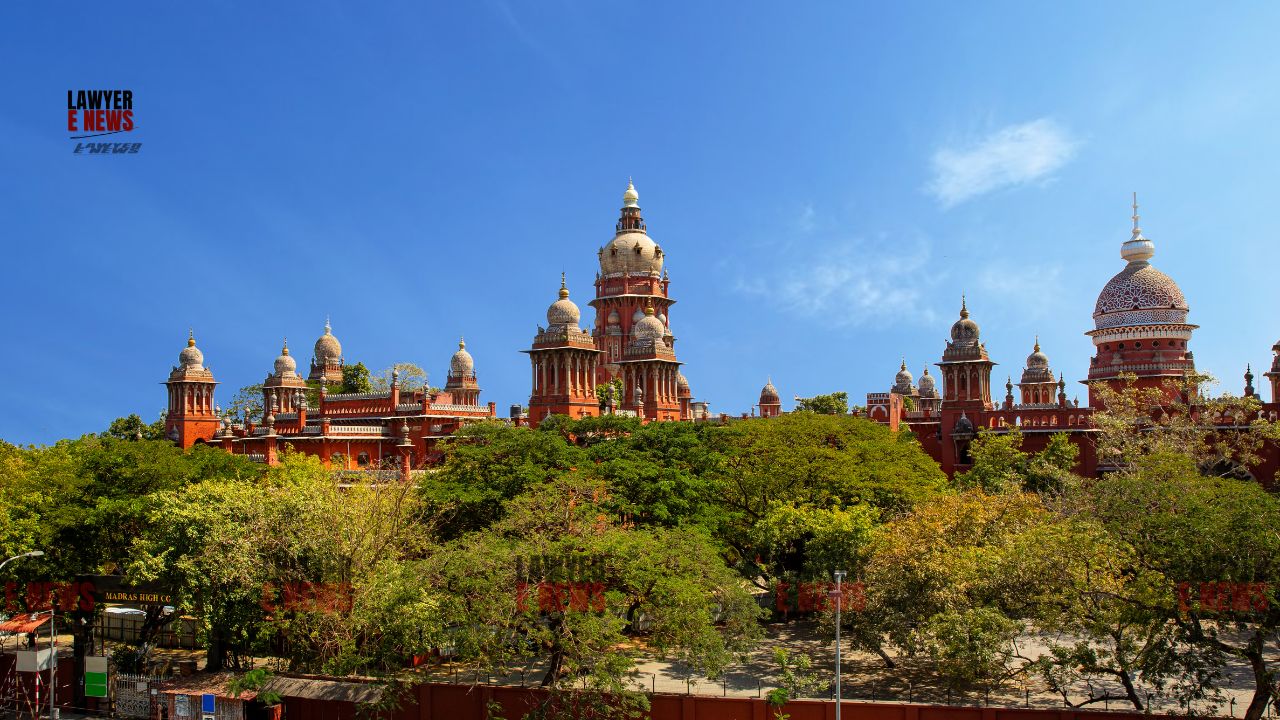-
by Admin
15 February 2026 5:35 AM



The Madras High Court, in a recent judgment, dismissed a writ petition seeking the alteration of a petitioner’s date of birth in the service register. The petitioner, K. Subash Chandra Bose, had requested the change based on a decree obtained from a civil court, which the High Court declared "null and void." The judgment emphasized that service-related birth record alterations must follow the procedures outlined in service rules and that civil courts have no jurisdiction in such matters.
The petitioner, K. Subash Chandra Bose, filed a writ petition under Article 226 of the Constitution, seeking to change his date of birth in the service register from April 6, 1964, to December 12, 1966. He claimed that his date of birth was incorrectly recorded due to an inadvertent mistake during his school admission. Despite obtaining a favorable decree from the District Munsif Court, Thiruvaiyaru, in March 2024, the petitioner's request for birth record correction was rejected by the government authorities. The rejection was based on legal precedents and guidelines prohibiting such changes after certain periods, leading to the present writ petition.
The court focused on the issue of whether the decree from the civil court was binding on government authorities in altering the service records of a government servant. Referring to earlier judgments, the court noted that service matters, such as changes in the date of birth, are governed by specific rules, namely Rule 49 of the Tamil Nadu State and Subordinate Service Rules, now codified under Section 59 of the Tamil Nadu Government Servants (Conditions of Service) Act, 2016. These rules explicitly require employees to seek alterations within a certain timeframe and through the appropriate governmental channels.
The court held that civil courts lack the authority to issue decrees in such matters, stating that a decree altering the date of birth for a government employee is "impliedly barred" under service rules. Thus, the civil court's decree was considered non-binding on the state authorities.
The court also addressed the petitioner’s claim based on his SSLC (Secondary School Leaving Certificate) examination. As per the Government Guidelines of 2018, issued following a 2017 High Court ruling, any request for birth date alteration must ensure that the individual was of legal age to sit for the SSLC exam. The petitioner would have been only 12 years and 6 months old during the examination if the requested date of birth was accepted, failing the mandatory 14-year requirement.
Justice N. Anand Venkatesh, delivering the judgment, reaffirmed that birth record alterations for government servants are subject to Section 59 of the Tamil Nadu Government Servants (Conditions of Service) Act, 2016. The court cited past rulings, including W.P. No. 17792 of 2004 and W.P. No. 16062 of 2010, which restrict the ability of civil courts to entertain suits on such matters.
The court ruled that since the petitioner’s application for alteration of the date of birth was not in compliance with statutory rules, the decree obtained from the civil court was "null and void." It further held that service records cannot be altered on the basis of civil decrees, reaffirming that such changes must strictly adhere to governmental and service rules.
Justice Venkatesh remarked: “The jurisdiction of the civil court is ousted in matters directly concerning service records governed by specific enactments. A decree from a civil court cannot bind government authorities in altering service registers unless the proper statutory procedures have been followed.”
The dismissal of this petition reiterates the importance of adhering to statutory procedures when seeking changes in government records, particularly those related to service matters. The judgment affirms that civil courts cannot grant relief that conflicts with service rules, sending a strong message to public servants about the limitations of such legal routes. This ruling may impact future cases where similar attempts to alter service records through civil courts are made.
Date of Decision: September 06, 2024
K. Subash Chandra Bose VS The State of Tamil Nadu & Ors.
